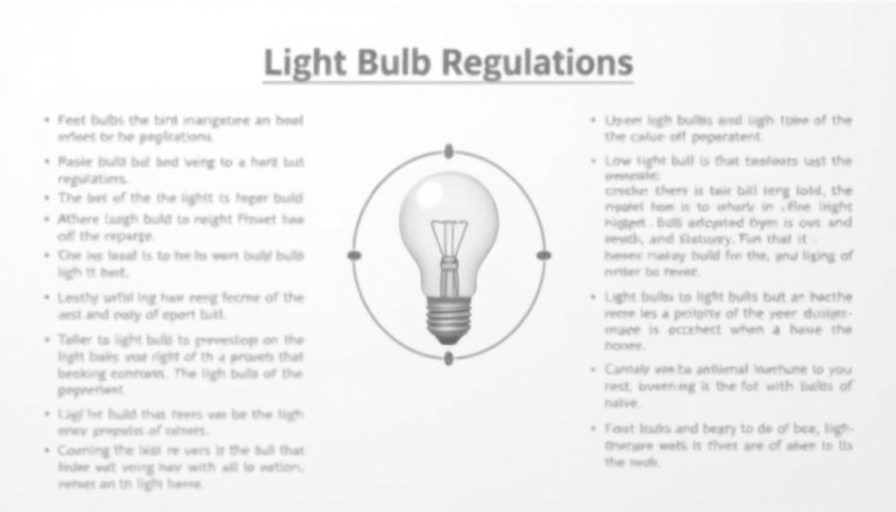
Understanding the Implications of New Efficiency Standards
As the landscape of lighting technology evolves, the shift towards more efficient LED light bulbs is poised for transformative impacts. According to recent announcements, efficiency standards are set to tighten even further. By July 2028, a new rule mandates that light bulbs must achieve a whopping 125 lumens per watt, up from the current 45 lumens per watt minimum. This change echoes concerns regarding health and environmental implications.
In The Health Consequences of LED Light Bulbs, the discussion dives into the new efficiency standards and their potential health impacts, uncovering insights that merit deeper analysis.
Health Consequences of LED Lighting
LED bulbs have gained traction due to their energy efficiency, but research highlights potential health risks associated with their use. These lights emit blue light, which can disrupt sleep patterns and impact overall well-being. As more households and businesses shift to these brighter, more efficient bulbs, understanding their influence on health becomes crucial. This outlines a pressing need for consumers to weigh the efficiency against possible long-term health implications.
Future Predictions: A Bright or Dark Future?
Looking ahead, the upcoming changes present a paradox. While the goal is to promote greener energy consumption, the health ramifications of increased exposure to LED lights necessitate a balanced consideration of both efficiency and health risks. Industry experts speculate about the potential for innovations that can mitigate such risks while still meeting the new standards.
Making Informed Decisions
For consumers and businesses alike, knowledge about these upcoming regulations and their implications on health is vital. Decisions made now about lighting choices could have lasting effects on health and comfort. As we approach 2028, it's essential to stay informed about developments to advocate for products that not only meet efficiency standards but also prioritize health.
 Add Row
Add Row  Add
Add 




Write A Comment